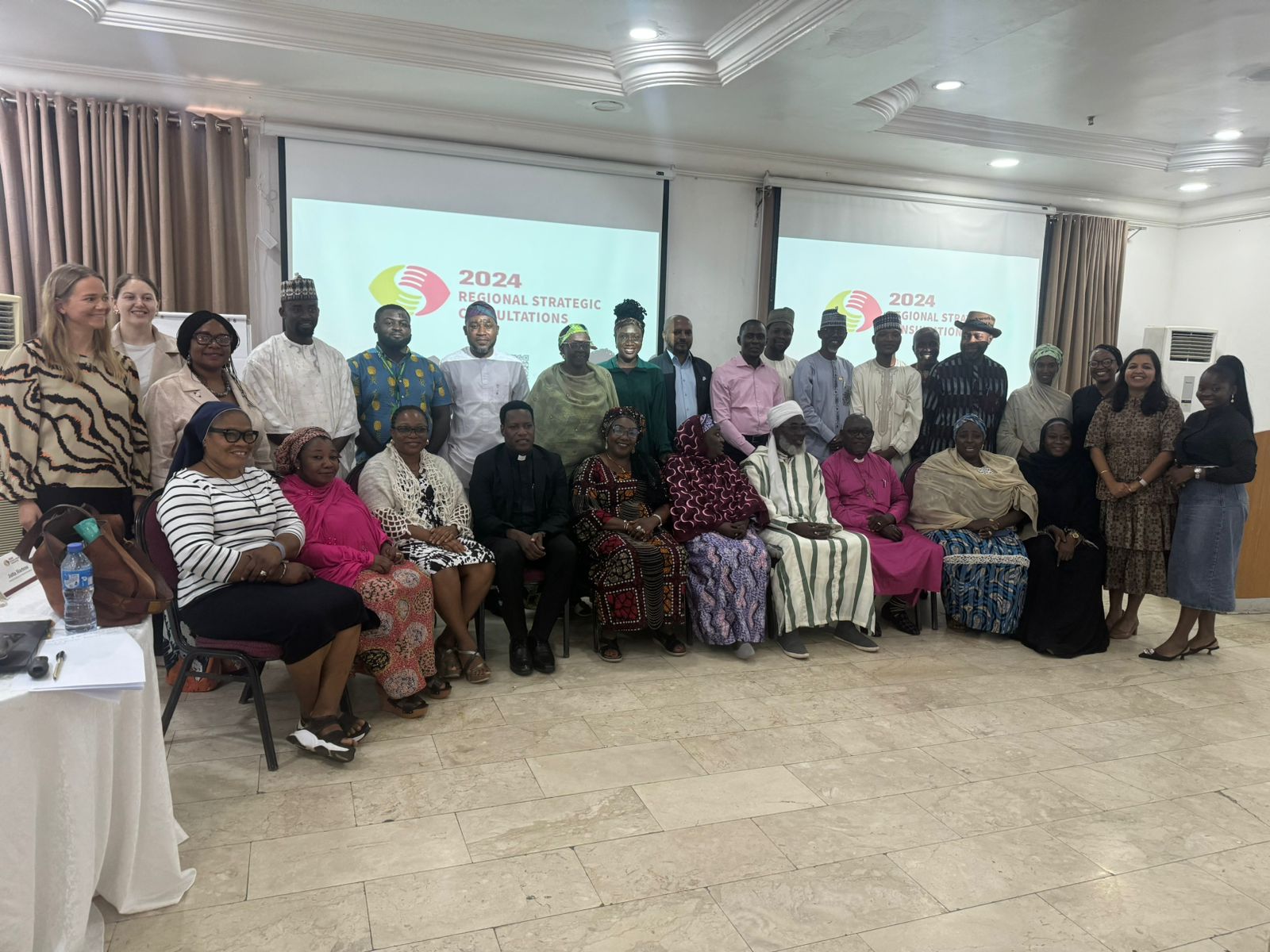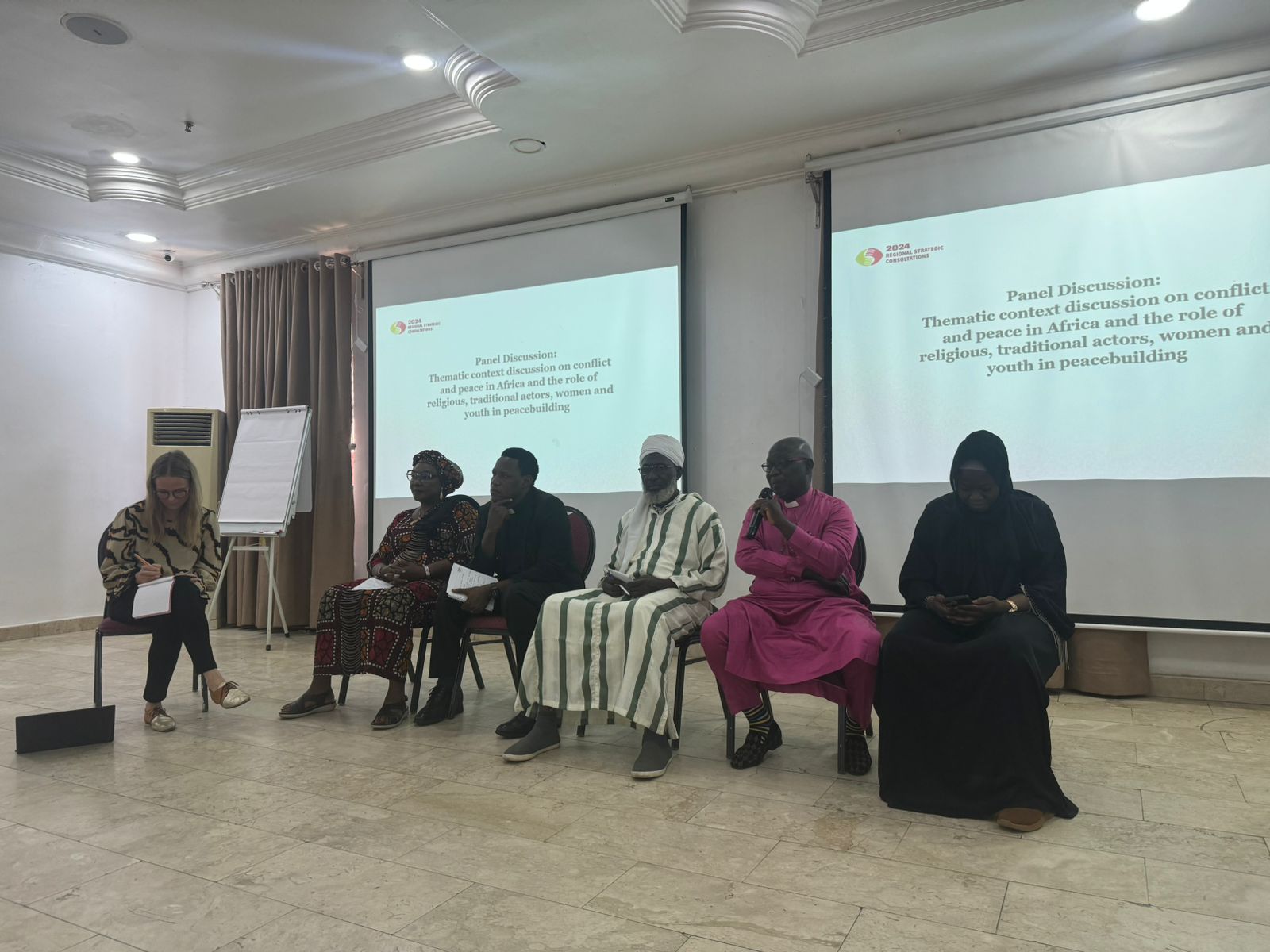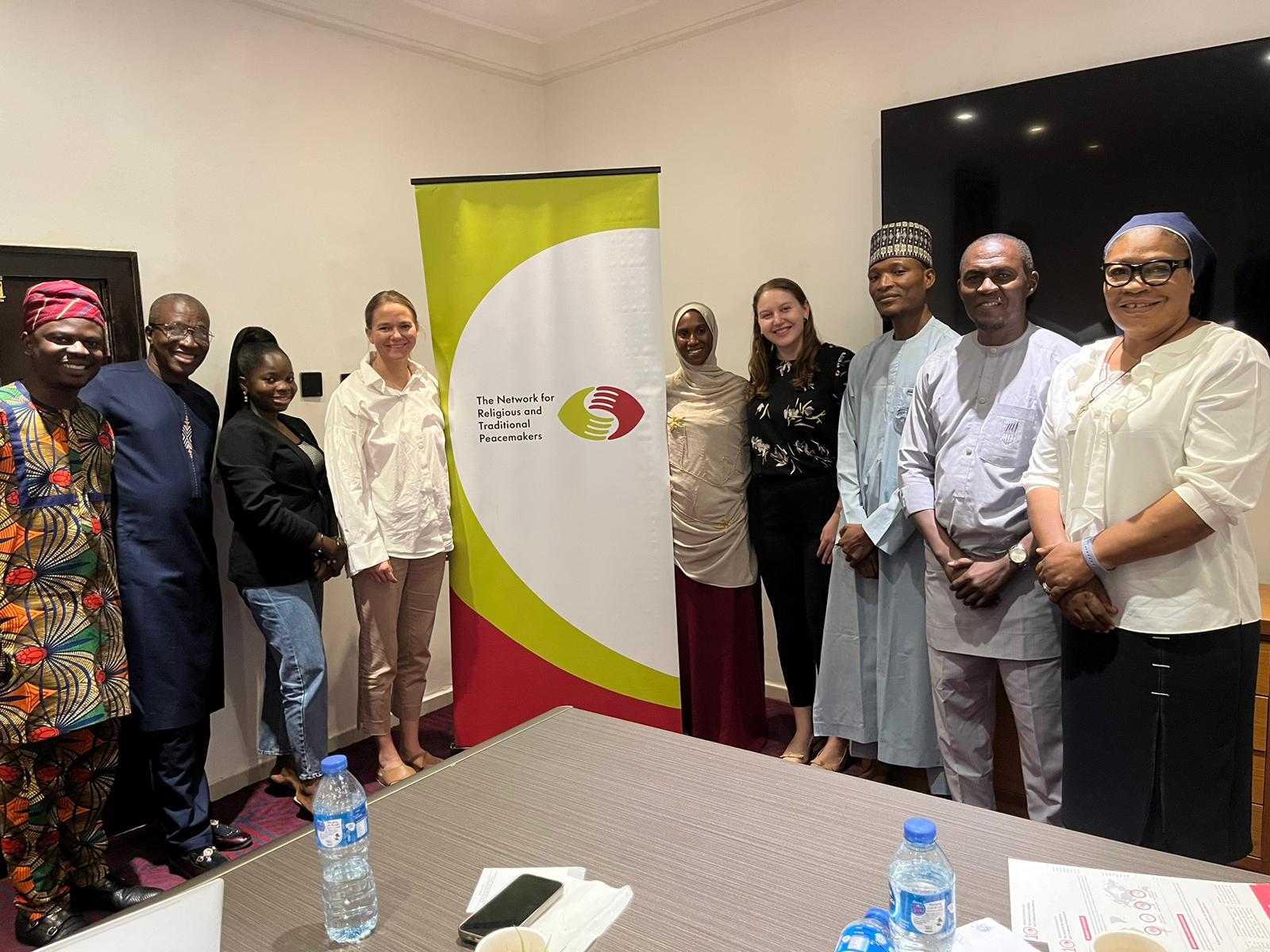Strategic Consultation with Members, Partners, and Supporters of the Peacemakers Network in Abuja
October 2024
In 2019, the Peacemakers Network’s Steering group, members, supporters, and the Network Secretariat adopted its first Strategy for 2020-2025. This document formalized the vision and mission, approaches and methods, and strategic priorities of the Peacemakers Network.
As the end of the current strategy period approaches, the Secretariat will consult with members, supporters, and partners to evaluate the efficacy of the strategy and determine best mechanisms to improve collaborative efforts to ensure the Peacemakers Network can effectively support peace in a multipolar world. The regional and country consultations are designed to strengthen the Peacemakers Network by ensuring localized interactions between members and supporters, creating opportunities for localized partnerships, and allowing for greater ownership of the next strategy from the onset of its development.
Second Regional Strategic Consultation in Abuja, Nigeria
From October 29-31, Network members, supporters, and partners gathered in Abuja, Nigeria where participants provided key inputs about the effectiveness and impact of the Peacemakers Network’s current strategy as well as recommendations for the next strategy period. The consultations also provided space to strengthen existing relationshops and give new opportunities for future collaboration.

Group photo of participants at the Abuja Strategic Consultation. 2024.
Day 1 Highlights
The first day brought together thirty participants to discuss Nigeria’s complex conflicts and how they can be addressed through complex-specific and culturally sensitive capacity building, training, and interfaith initiatives. The importance of inter-faith and intra-faith was reiterated by multiple participants who emphasized that intra-faith dialogue is paramount before engaging in inter-faith conversations to achieve lasting peace. In Nigeria, peacebuilders face many challenges to peace including economic hardships, political divisiveness, and social insecurity but there are also many opportunities to address those challenges by advocating for the inclusion of women in decision-making processes, meaningfully engaging youth, and enhancing the positive role of religious leadership.

Panel discussion moderated by Jutta Martens, Peacemakers Network’s Programme Coordinator for Sub-Saharan Africa, with panelists Elder Amb. Justina Mike Ngwobia, Dr. Barkindo, Imam Muhammad Ashafa, Pastor James Wuye, and Aminu Aisha Marafa. 2024.
Day 2 Highlights
On the second day of the consultation, discussions were focused on Africa’s 2025 thematic priorities, evaluating what is present, what should be added or excluded, and whether the scope of actors or countries should be expanded upon. Throughout the day, participants emphasized intergenerational, intercultural, and interreligious dialogue, especially through storytelling. Research, advocacy, capacity building, and networking are utilized at the grassroots level to build resiliency against hate. Additionally, participants agreed that more resources and energy need to be allocated to address climate-induced conflict, as it leads to displacement and intensified farmer-herder disagreements. Religious and traditional leaders can advocate and build capacity to support the reintegration and resettlement of persons displaced due to climate-induced conflict.
Day 3 Highlights
On the final day of the consultation, Network members convened internally that addressed how the Peacemakers Network could better support the Nigeria members. Alongside strengthened communication with the Network Secretariat, participants expressed desire for more communication and collaboration with members in Nigeria, West Africa, and Sub-Saharan Africa through formal and informal means. They collectively agreed to focus on good governance, preventing violent extremism, and gender-based violence in 2025. Additionally, members emphasized the need for stronger representation of traditional actors and people living with disabilities in all future collaborative projects.

Internal meeting with Network members and the Secretariat. 2024.
Follow the Network on social
